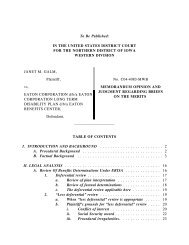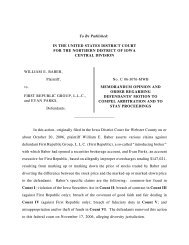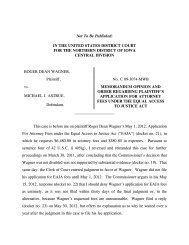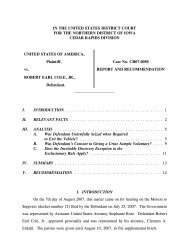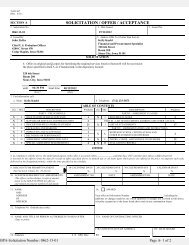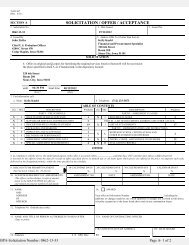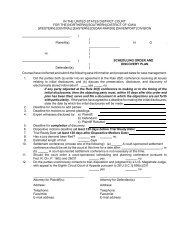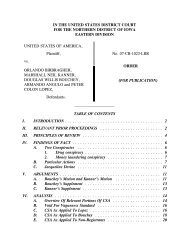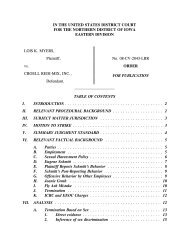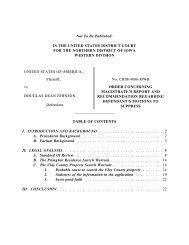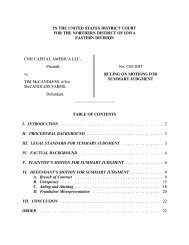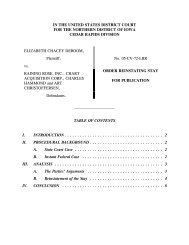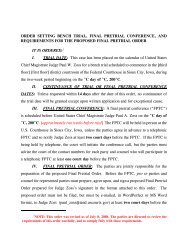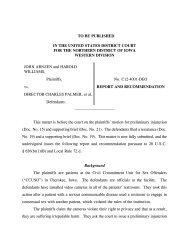Shannon v. Koehler - Northern District of Iowa
Shannon v. Koehler - Northern District of Iowa
Shannon v. Koehler - Northern District of Iowa
Create successful ePaper yourself
Turn your PDF publications into a flip-book with our unique Google optimized e-Paper software.
proceedings arising from the September 13, 2006, incident, including the charges filed<br />
against <strong>Shannon</strong> and his conviction for interference with <strong>of</strong>ficial acts, should be introduced<br />
in this trial because the criminal proceedings are not relevant to whether <strong>Koehler</strong> used<br />
excessive force in arresting <strong>Shannon</strong>. <strong>Shannon</strong> argues that the reasons that <strong>Koehler</strong> used<br />
force on <strong>Shannon</strong>—suspected intoxication and assault <strong>of</strong> a peace <strong>of</strong>ficer—are relevant to<br />
this case, but that the actual charges for which <strong>Shannon</strong> was arrested are not. <strong>Shannon</strong><br />
also argues that I should exclude evidence <strong>of</strong> the criminal proceedings under Rule 403<br />
because it will only serve to confuse the jury, waste time, and unfairly prejudice <strong>Shannon</strong>.<br />
<strong>Shannon</strong> maintains, however, that if I permit the defendants to introduce evidence<br />
<strong>of</strong> the charges against <strong>Shannon</strong> and his conviction for interference with <strong>of</strong>ficial acts, I<br />
should also allow <strong>Shannon</strong> to introduce evidence that he was found not guilty <strong>of</strong> assaulting<br />
a peace <strong>of</strong>ficer and public intoxication. <strong>Shannon</strong> argues that because the defendants intend<br />
to interject evidence <strong>of</strong> the interference with <strong>of</strong>ficial acts conviction into this trial, it would<br />
be misleading and unfairly prejudicial if <strong>Shannon</strong> could not also present evidence that he<br />
was found not guilty on the other charges that arose out <strong>of</strong> the same incident. <strong>Shannon</strong><br />
asserts that the not guilty verdict on the assault <strong>of</strong> a peace <strong>of</strong>ficer charge is relevant to<br />
show that a jury, after hearing evidence very similar to that in this case, found <strong>Shannon</strong><br />
innocent. <strong>Shannon</strong> also contends that both not guilty findings are relevant to show that<br />
<strong>Shannon</strong> maintained his innocence and denied Officer <strong>Koehler</strong>’s claims throughout the<br />
criminal proceedings. In response to the defendants’ argument that evidence <strong>of</strong> an<br />
acquittal would be hearsay, <strong>Shannon</strong> contends that his acquittals are not hearsay or, in the<br />
alternative, that they are hearsay subject to an exception. He argues that the acquittals<br />
would not be introduced to prove the truth <strong>of</strong> the matter asserted—that <strong>Shannon</strong> did not<br />
assault <strong>Koehler</strong>—but rather to show that <strong>Shannon</strong> maintained his innocence and to rebut<br />
the misleading impression created by only presenting evidence <strong>of</strong> <strong>Shannon</strong>’s conviction.<br />
18



